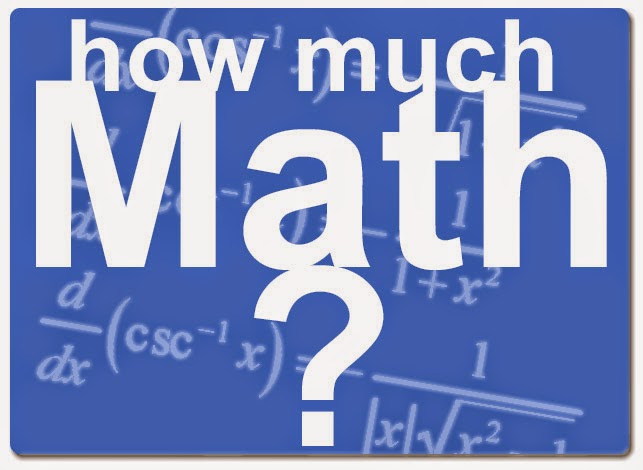Why don't more schools offer students the opportunity to pursue their own interests?
A simple and sensible question...
What if 'the course of studies doesn't have what a student is looking for?
If we don't offer students to pursue their ideas... it does seem like were asking students to mispredict their future.
It's certainly cheaper to promote this kind of exploration in high school instead of asking students to pursue different career paths / switch majors in college.
Here's a list of the topics that students chose to pursue in the rLab where I used to teach.
If you glanced at it... there's no way you could cover those interests in a typical course of studies.
What do these programs look like in schools?
Two Most Common Models
1. Course based
Create a course where students choose their own topic / interest to pursue.
Course based works best if it's offered multiple times per day... but even once per day is a start.
I spent 9 years developing this model where I used to teach. The freedom to choose immediately put pressure on existing curriculum offerings and conventional constructs of 'time in schools.' We typically think of school in semester and year long blocks. I chose a model where a student could explore a topic for a minimum of three weeks before moving on to another. Many showed full semester mastery in far less time.
Mentorship and facilitation was key. I couldn't be an expert in everything students would cover... but you don't need to be with the right scaffolding. Inquiry, Research, Collaboration, Presentation, and Reflection were all important elements to develop with students. Students developed their own rubrics (with me) to help identify successful traits. We got pretty good at it.
On many occasions, students delivered to me by guidance as 'the last resort' found footing. They often desperately needed to find some spark in 'school.' Once they were 'given permission' to pursue their interests, introducing other interdisciplinary elements became easy and the students were willing to pursue them instead of the usual... threatened by grades, punished by detentions, etc.
2. Capstone Program
Require students to demonstrate learning on a personal choice for graduation.
Same deal as above... connect with community consultants, demonstrate interdisciplinary learning, etc.
Many schools go this route. This changes the 'senior experience' significantly.
Some struggles of the capstone model?
Time.
Is the capstone an 'add' to all the other student curricular and extra-curricular work? If so, it can be troubling and limiting for students, especially those with family / work demands.
The best capstone projects I've found are integrated into the day via 1/2 and sometimes full day release for seniors. The demands increase, and the work becomes significantly more thoughtful as participants have time to pursue goals, get help, meet with advisors, etc.
Two Essentials for Choice Courses or Capstones That Pay Immense Dividends
1. Community consultant connections
Community consultants helped students with heavy lifting often. They pointed out directions, and hared experiences readily. We actually never had a bad experience with this in the Lab in 9 years.
Each student was required to connect with an professional mentor in their field of study. We made over 1000 connections across the globe.
2. Insight Into 'Their Education'
Many of the best students at 'school' struggled mightily in the Lab at first. They were used to following scripts, decoding textbooks, doing exactly what they were told as long as it was delivered in a scripted format. As you might expect, many students who struggled in traditional school flourished once personal topic choice was introduced into the equation. And their were many in between both spectrums. All of them though, searching to find interests and meaning.
Learning how to learn, and identifying your strengths and weaknesses within should / could be part of every good course based or capstone program.
The stories from the lab students tell me, and how it impacted their high school experience, college experience, work experience and lives has been truly humbling to hear over all thee years.
Schools that Run Both... Student Topic Choice Courses and Capstone Program?
I don't know of any at this time. But...
I often felt the course based model I was started and developed should be the precursor to a robust capstone program. Sadly, it never came to fruition. I'm anxious to work with a school on developing this model though.
Topic choice courses that lead to a full capstone...
Interdisciplinary mentors within the school...
Community Consultant requirements for your project... connect with professionals...
Capstones could get more and more robust and meaningful.
Capstone could be archived year to year... and students could develop their online personal / professional website...
I digress... ; )
It's All Out There...
Many schools have gone this route already and have tons of experience and they can help. I'd encourage you, if you haven't to start a program at your school if it doesn't exist.
And if it does... bring in some outside eyes and figure the student experience and interdisciplinary opportunities even more meaningful.
If you don't... you're missing a great opportunity to pursue 'learning' that's not scripted. Learning that' messy, challenging, interdisciplinary, and very personally rewarding. We're missing the chance to connect students with professionals around the world.
There are always ways to make programs better.
What's holding so many schools back from offering students time to pursue their interests?
I'll toss some of those up tomorrow.
<<<
Links to the full 'What Are We Teaching and Why? series:
8. Start overhauling tired learning spaces
7. #educolor and literary choices
6. Positive ripples of student choice
5. Common roadblocks
4. Student pursuing their interests
3. The Other Math
2. Rethinking Math Requirements
1. AP Classes





















